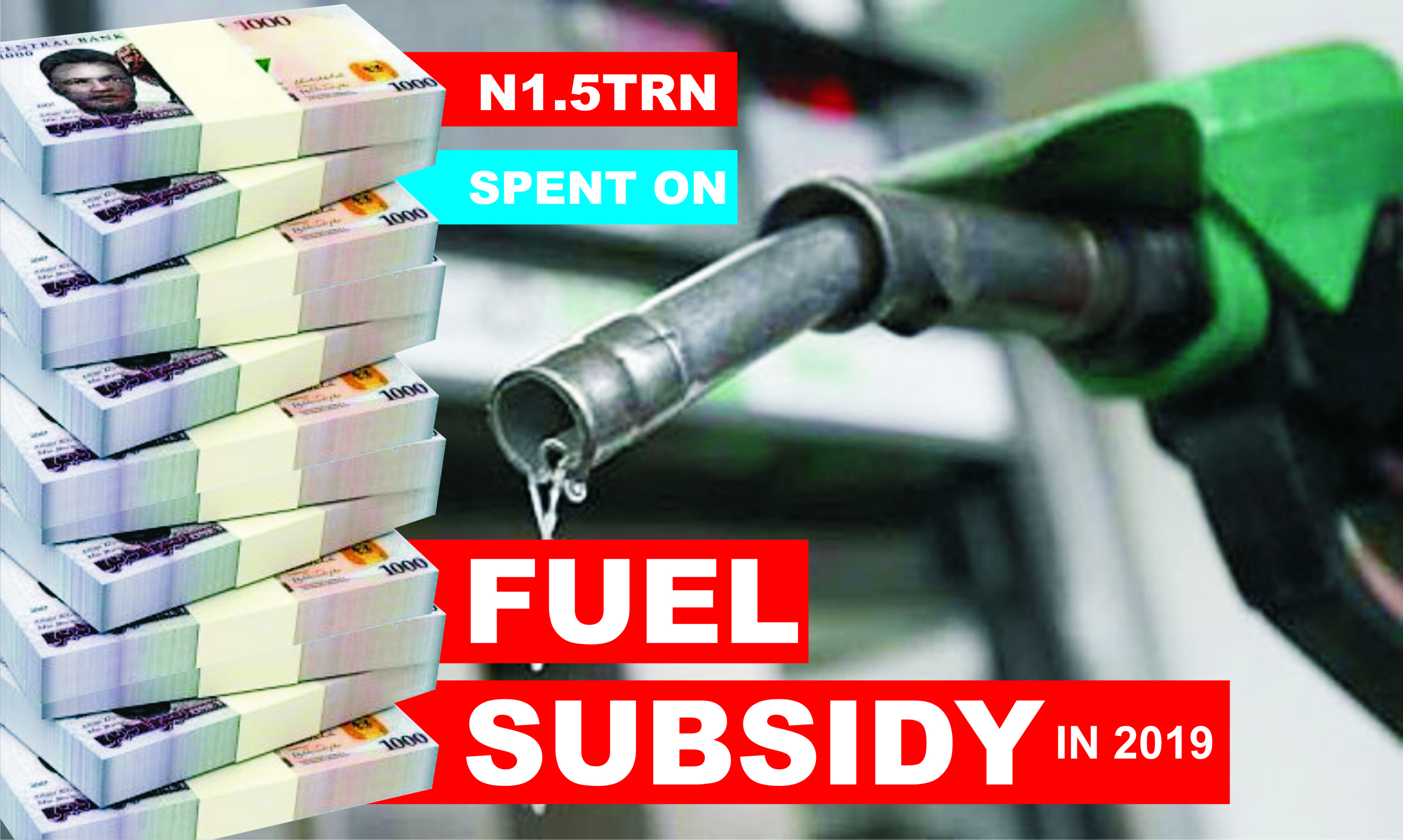Business
Fuel Subsidy, Bane Of Nigeria’s Economy – World Bank

The World Bank has said that increasing fuel subsidy puts the Nigerian economy at a high risk.
It also noted that subsidy payments could significantly impact public finance and pose debt sustainability concerns.
Stating this in a new biannual report known as Africa’s Pulse, bank said Nigeria is projected to have a 3.8 per cent growth in 2022, adding that as an oil-dependent country, weak oil production hampers economic recovery.
It continued that the increasing fuel subsidy poses a high risk to the country’s economic growth, despite the increase in oil prices.
“Growth in Nigeria is forecast to increase to 3.8 per cent in 2022 and stabilise at 4 per cent in 2023-24. Real GDP growth was revised up by 1.2 percentage points for both periods compared with the previous forecast. Nigeria’s economy is still dependent on the oil sector. Oil-related revenue contributes 40 to 60 per cent of fiscal revenue, while oil and gas account for 80 to 90 per cent of total exports.
“Weak oil production, below the OPEC quota, held back the recovery process. Although at a slower pace than the average seven per cent during the boom period, growth prospects for the Nigerian economy are somewhat bright thanks to high oil prices coupled with reforms initiated by the passing of the Petroleum Industry Act and the completion of the Dangote refinery expected in 2023.
“Risk remains high on increasing fuel subsidies, which could weigh heavily on public finance and pose debt sustainability concerns. Nevertheless, public debt as a percentage of GDP is currently moderate”, the report said.
According to the World Bank, the high level of oil prices will affect countries that are shielding the impact on their consumers through fuel subsidies, such as Nigeria and Ethiopia.
It added that the high cost of fuel subsidies, due to the increase in oil prices, may deteriorate the country’s fiscal balance.
In 2021, the Nigerian National Petroleum Corporation said fuel subsidy gulped N1.43tn, although there was no record for under-recovery in January.
The National Assembly has approved N4tn as fuel subsidy bill for 2022, which is an increase of 179.72 per cent over the previous year’s subsidy bill.
However, experts have warned the Federal Government that the N4tn fuel subsidy bill would adversely affect the country’s economy.
The Country Director, World Bank, Shubham Chaudhuri, had said Nigeria’s decision to postpone the full deregulation of the downstream sector of the petroleum industry by 18 months might cost the country over N4tn in subsidy payments on petrol in 2022.
The World Bank’s Country Director, however, noted that while the World Bank could come up with advice on subsidy removal, its role was certainly not to dictate as it had no ability to do such.
Chaudhuri said: “With economics, really, you are not meant to make a political decision. What you are meant to do is to lay out what are the cons and consequences of different decisions.
“So that is what we are doing, we are just being very clear that this would come with a fiscal cost and the fiscal cost is the number, perhaps N4tn this year.”
He said despite the fact that the price of oil had gone up, the rise in global crude oil prices was not helping Nigeria that much.
Business
Agency Gives Insight Into Its Inspection, Monitoring Operations

Business
BVN Enrolments Rise 6% To 67.8m In 2025 — NIBSS

The Nigeria Inter-Bank Settlement System (NIBSS) has said that Bank Verification Number (BVN) enrolments rose by 6.8 per cent year-on-year to 67.8 million as at December 2025, up from 63.5 million recorded in the corresponding period of 2024.
In a statement published on its website, NIBSS attributed the growth to stronger policy enforcement by the Central Bank of Nigeria (CBN) and the expansion of diaspora enrolment initiatives.
NIBSS noted that the expansion reinforces the BVN system’s central role in Nigeria’s financial inclusion drive and digital identity framework.
Another major driver, the statement said, was the rollout of the Non-Resident Bank Verification Number (NRBVN) initiative, which allows Nigerians in the diaspora to obtain a BVN remotely without physical presence in the country.
A five-year analysis by NIBSS showed consistent growth in BVN enrolments, rising from 51.9 million in 2021 to 56.0 million in 2022, 60.1 million in 2023, 63.5 million in 2024 and 67.8 million by December 2025. The steady increase reflects stronger compliance with biometric identity requirements and improved coverage of the national banking identity system.
However, NIBSS noted that BVN enrolments still lag the total number of active bank accounts, which exceeded 320 million as of March 2025.
The gap, it explained, is largely due to multiple bank accounts linked to single BVNs, as well as customers yet to complete enrolment, despite the progress recorded.
Business
AFAN Unveils Plans To Boost Food Production In 2026
-

 News2 days ago
News2 days ago2026 Budget: FG Allocates N12.78bn For Census, NPC Vehicles
-

 Featured5 days ago
Featured5 days agoRSG Kicks Off Armed Forces Remembrance Day ‘Morrow …Restates Commitment Towards Veterans’ Welfare
-

 Featured5 days ago
Featured5 days agoTinubu Hails NGX N100trn Milestones, Urges Nigerians To Invest Locally
-

 Sports2 days ago
Sports2 days agoAFCON: Osimhen, Lookman Threaten Algeria’s Record
-

 Politics2 days ago
Politics2 days agoWike’s LGAs Tour Violates Electoral Laws — Sara-Igbe
-

 Politics2 days ago
Politics2 days agoRivers Political Crisis: PANDEF Urges Restraint, Mutual Forbearance
-

 Maritime2 days ago
Maritime2 days agoMARITIME JOURNALISTS TO HONOUR EX-NIWA MD,OYEBAMIJI OVER MEDIA SUPPORT
-

 Sports2 days ago
Sports2 days agoPalace ready To Sell Guehi For Right Price

